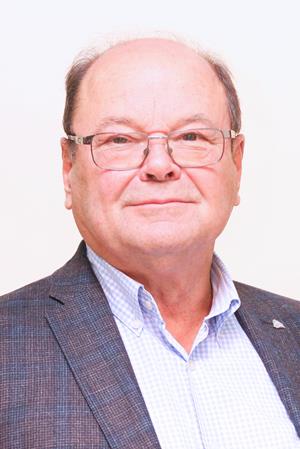Professor Pavel Dungl, head emeritus of the Orthopaedic Department of Na Bulovce Hospital
 In contrast to
clinical departments established right from the outset as part of the First
Faculty of Medicine of the Charles University, I experienced a rather bitter
period when our, at its time most advanced orthopaedic institute, merely
aspired to the status given by university affiliation. When it came to even the
lowest of academic degrees, we had to beg one of the Prague orthopaedic
university clinics. We were also a clinic, but only of the institute for
further medical education. We were over the moon when we were in 1999 subsumed
under the First Faculty of Medicine. The fact that both the first and the
second department of orthopaedic medicine were at that time moving into new,
rather small facilities in Motol, probably played a role in this development.
From the very beginning, we started to train medics of both the Czech and the
English programme. This teaching felt quite simple and straightforward, perhaps
even primitive, in comparison to preparation for first and second postgraduate
certification. At once, we became the only department that offered the full
range of orthopaedic subspecialisations, from paediatric orthopaedic surgery
and spondylosurgery, all the way to traumatology, sport orthopaedics, and a department
of alloplastic surgery and oncology. We still offer parallel undergraduate and
postgraduate education in the full range of orthopaedic specialisations, and in
alloplastic surgery, we collaborate with the orthopaedic department in Motol.
In contrast to
clinical departments established right from the outset as part of the First
Faculty of Medicine of the Charles University, I experienced a rather bitter
period when our, at its time most advanced orthopaedic institute, merely
aspired to the status given by university affiliation. When it came to even the
lowest of academic degrees, we had to beg one of the Prague orthopaedic
university clinics. We were also a clinic, but only of the institute for
further medical education. We were over the moon when we were in 1999 subsumed
under the First Faculty of Medicine. The fact that both the first and the
second department of orthopaedic medicine were at that time moving into new,
rather small facilities in Motol, probably played a role in this development.
From the very beginning, we started to train medics of both the Czech and the
English programme. This teaching felt quite simple and straightforward, perhaps
even primitive, in comparison to preparation for first and second postgraduate
certification. At once, we became the only department that offered the full
range of orthopaedic subspecialisations, from paediatric orthopaedic surgery
and spondylosurgery, all the way to traumatology, sport orthopaedics, and a department
of alloplastic surgery and oncology. We still offer parallel undergraduate and
postgraduate education in the full range of orthopaedic specialisations, and in
alloplastic surgery, we collaborate with the orthopaedic department in Motol.
The First Faculty gives me a sense of belonging, of being part of the university, and the number of domestic and international doctoral students importantly adds to the prestige of our department. Research is seen as a natural part of our work. We organise national and international congresses and our physicians are active members of important European and overseas orthopaedic societies.
For over a decade, I worked at prestigious orthopaedic departments in the United States, Germany, and Switzerland, but also in Yemen, and thirteen times I went for two to four weeks a year to perform orthopaedic surgeries in Kuwait. And in all these places, I was able to present the high quality of Czech orthopaedic surgery and university education.
Photo: Markéta
Sýkorová
